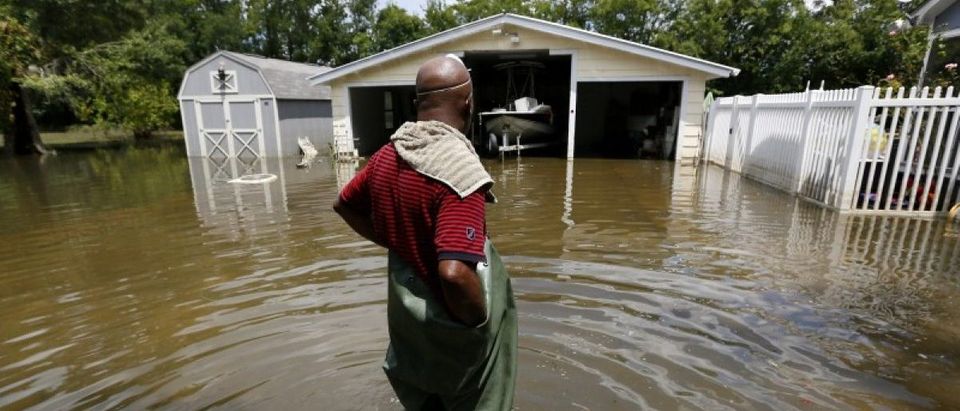Environmentalists from former Vice President Al Gore to Green Party candidate Jill Stein to even newspaper editorial boards have blamed the recent devastating flooding in Louisiana on man-made global warming.
Their argument is simple: global warming has warmed up the world, increasing the amount of precipitation, which increases rainfall. Global warming drove the 500-year flooding event, they argue.
“In other words, do not be surprised if the country sees more costly disasters such as the flooding that hit Baton Rouge over the past week,” The Washington Post editorial board wrote of the floods Monday.
“The area was not supposed to flood as it did,” they wrote.
“We’re seeing flood after flood which is coming in at a level of a so-called a 500 year storm or 1,000 year flood,” Stein, who’s running for president, told FOX Business of the floods. “When you’re having so many severe storms and floods, you have to say there’s something going on here.”
While environmentalists often argue big flooding events are “consistent” with expectations of global warming, the science is still out on whether or not humans are causing more heavy rainfall.
A recent study by University of Iowa researchers found “the stronger storms are not getting stronger, but a larger number of heavy precipitation events have been observed.”
The researchers, however, couldn’t attribute such events to man-made warming, instead they wrote “the climate variability of both the Atlantic and Pacific Oceans can exert a large control on the precipitation frequency and magnitude over the contiguous USA.”
A separate study led by a scientist with the National Oceanic and Atmospheric Administration (NOAA) concluded “no evidence was found for changes in extreme precipitation attributable to climate change in the available observed record.”
Linking global warming to specific weather events is an even trickier game. Smithsonian magazine notes that since “there are so many factors at play when it comes to weather… it can be difficult to tease out what’s a trend and what’s a situational issue.”
While the magazine does connect heavier downpours to global warming, it notes “researchers can only really say that climate change causes things like frequency and intensity of some weather events.” And even that is dicey.
But weather is only part of recent massive flooding events. Another important factor in flooding is land-use changes, especially urbanization.
Why does that matter? When cities expand and take up more land, it increases the coverage of concrete, asphalt and other “impermeable surfaces” as roads, sidewalks and other amenities are put in place. That means more water runoff during floods, overwhelming rivers and drainage systems.
“In 2016 rainfall is increasingly falling onto more urbanized, impervious surfaces. More asphalt and concrete increases the rate of runoff into streams, rivers, and lakes while reducing infiltration into the ground,” meteorologist Marshall Shepherd wrote in Forbes after massive flooding in Ellicott City, Maryland.
“Many peer-reviewed literature studies affirm that storm water engineering for some cities may designed for last century’s rainfall rates,” he wrote.
Baton Rouge, the epicenter of the flooding, has become increasingly urbanized over the last few decades. The New York Times published a series of maps detailing the extent of the flooding, which show just how densely populated the Baton Rouge region is.
Louisiana has also been dealing with flooding for decades, since much of the southerly, low-lying part of the state lies in flood zones. Since the 1970s, local officials have pushed for drainage improvements for the Amite River Basin.
But those projects were largely forgotten, according to a scathing report by The Advocate. The paper noted big “federal projects have been abandoned or left incomplete.”
“No one has suggested that the proposed Comite River Diversion Canal or the Darlington Reservoir would have prevented the flood,” The Advocate reported. “But the canal alone could have saved up to a quarter of the homes damaged in the basin, says the former president of the commission that oversees the project.”
Follow Michael on Facebook and Twitter
All content created by the Daily Caller News Foundation, an independent and nonpartisan newswire service, is available without charge to any legitimate news publisher that can provide a large audience. All republished articles must include our logo, our reporter’s byline and their DCNF affiliation. For any questions about our guidelines or partnering with us, please contact licensing@dailycallernewsfoundation.org.


